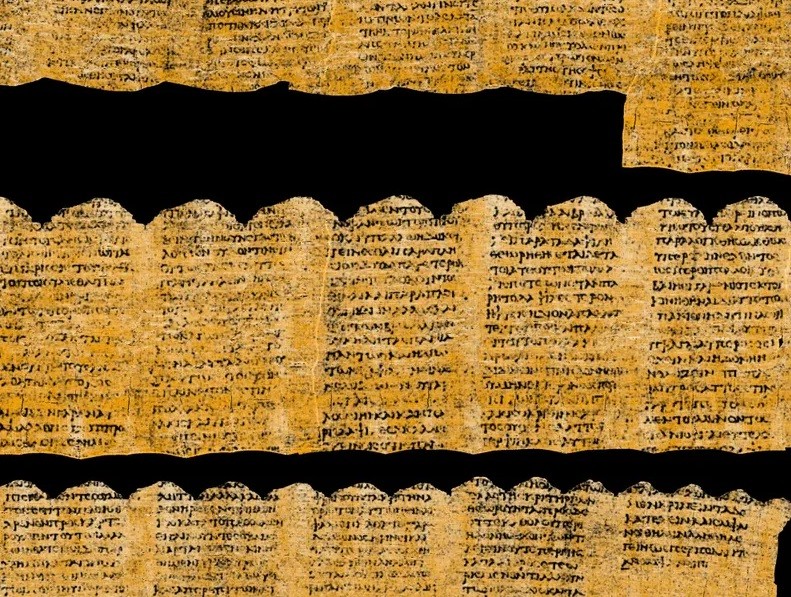07/02/2024
07/02/2024

LONDON, Feb 7: In a remarkable feat of technological innovation, three students have been awarded a $700,000 prize for their groundbreaking use of artificial intelligence (AI) to decipher a 2,000-year-old scroll that was charred during the eruption of Mount Vesuvius in 79 AD.
The ancient text, previously unreadable due to being burnt in the Roman town of Herculaneum during the same catastrophic event that engulfed Pompeii, is believed to have belonged to Julius Caesar's father-in-law and contains discussions on music and food.
Experts have hailed this breakthrough as a "revolution" in Greek philosophy, as the style of writing is consistent with that of the Greek philosopher Philodemus, known for his adherence to the teachings of Epicurus. Philodemus is speculated to have served as a philosopher-in-residence at Herculaneum.
The scrolls were discovered in the library of a luxurious villa in Herculaneum in the 18th century, but their contents remained a mystery due to severe damage from volcanic debris. Traditional attempts to unravel them proved futile as they disintegrated upon handling.
Dr. Federica, a papyrology researcher at the University of Naples, explained that while the volcanic eruption posed a curse to the scrolls, the high temperatures preserved them from decomposition, making the breakthrough possible.
Last year, Dr. Brent Seales and his team at the University of Kentucky utilized high-resolution CT scans to unravel the texts, but deciphering the black carbon ink proved challenging. Dr. Seales initiated the Vesuvius Challenge, offering a $1 million prize for a viable solution.
Youssef Nader, Luke Farritor, and Julian Schillinger, a team of tech-oriented students, developed an AI model employing pattern recognition to decode the lettering. Their model successfully deciphered 2,000 Greek characters, revealing discussions on the sources of pleasure in life, including music and food.
Dr. Federica expressed optimism, stating, "This is the start of a revolution in Greek philosophy in general."
The team behind the Vesuvius Challenge aims to use this technology to decode 90% of the remaining text on the scrolls, and eventually all 800, providing invaluable insights into ancient philosophy and culture.


